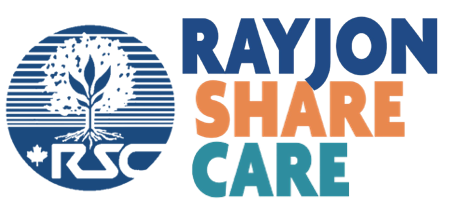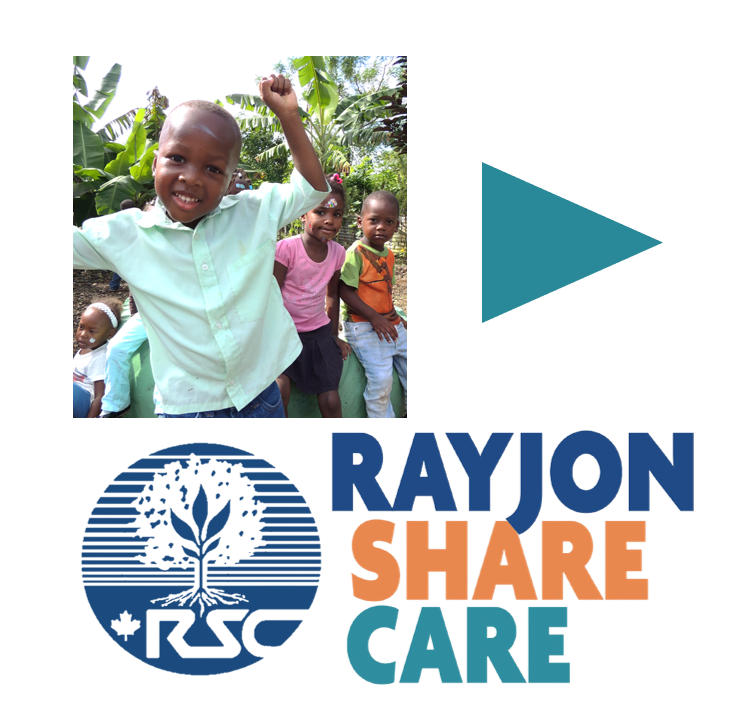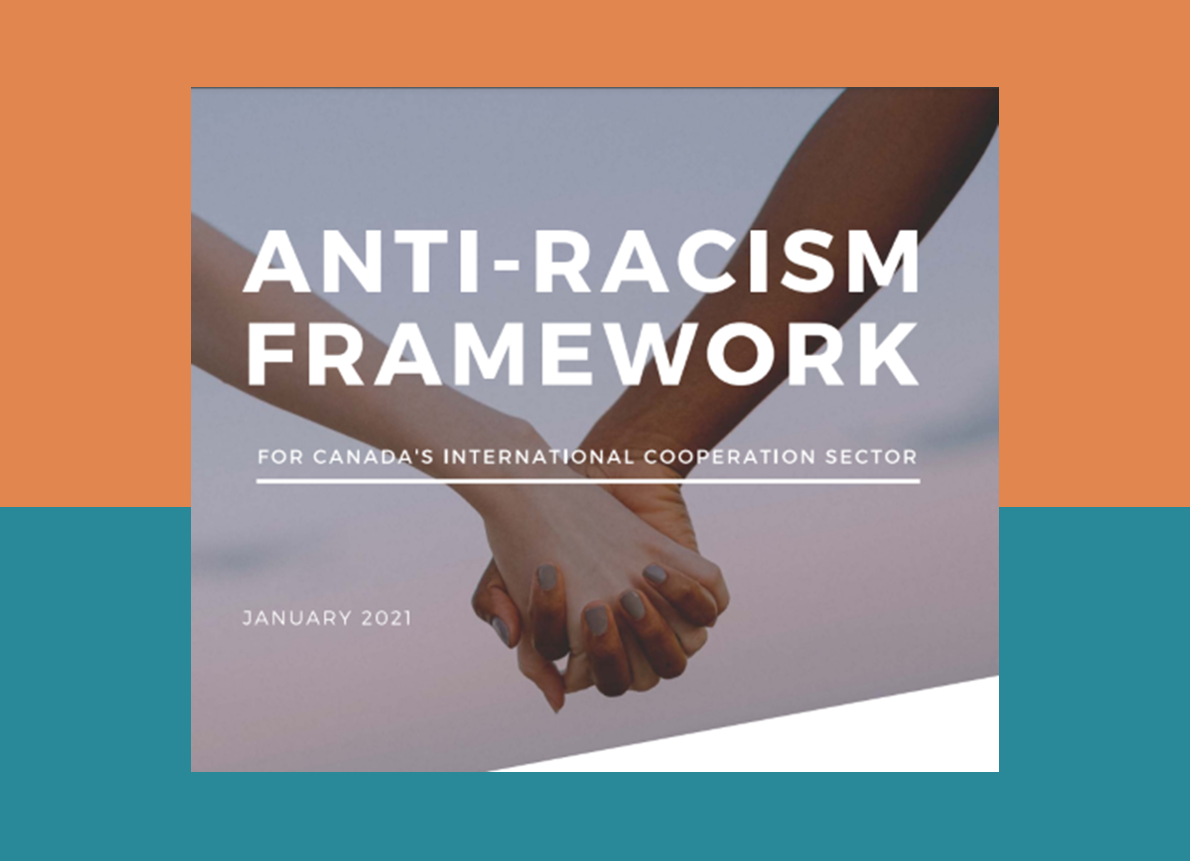Our Strategic Plan & Vision for the Future
Strategic visioning helped us to “Re-Imagine Rayjon” and culminated in our Strategic Plan 2023-2028.
Our Mission
Rayjon Share Care works in partnership with communities in Haiti and the Dominican Republic to reach their goals in sustainable development and social justice. We invest in relationship building and the two-way exchange of knowledge, resources and skills to create bridges of sharing—local to global.
Our Vision
Our community partners in Haiti and the Dominican Republic are empowered and have the resources to determine their future.
Rayjon’s approach is one of partnership. Community development initiatives are inspired, directed, and implemented by innovative and talented Haitian & Dominican partners. They know best what the real needs of their communities are and how to solve them.
How will we get there?
Below is our “Theory of Change,” a pictorial representation that shows the “links” between the results we hope to achieve (see our Vision in the circle at the top of the diagram) and how we expect change to happen. It gives us a tool to better understand the ever-evolving context, where we and our partners fit in, and where transformation happens, so that we might monitor progress and continue to make changes needed for that future we are aiming for!
Watch the video at left for a beautiful walk-through of our Theory of Change!
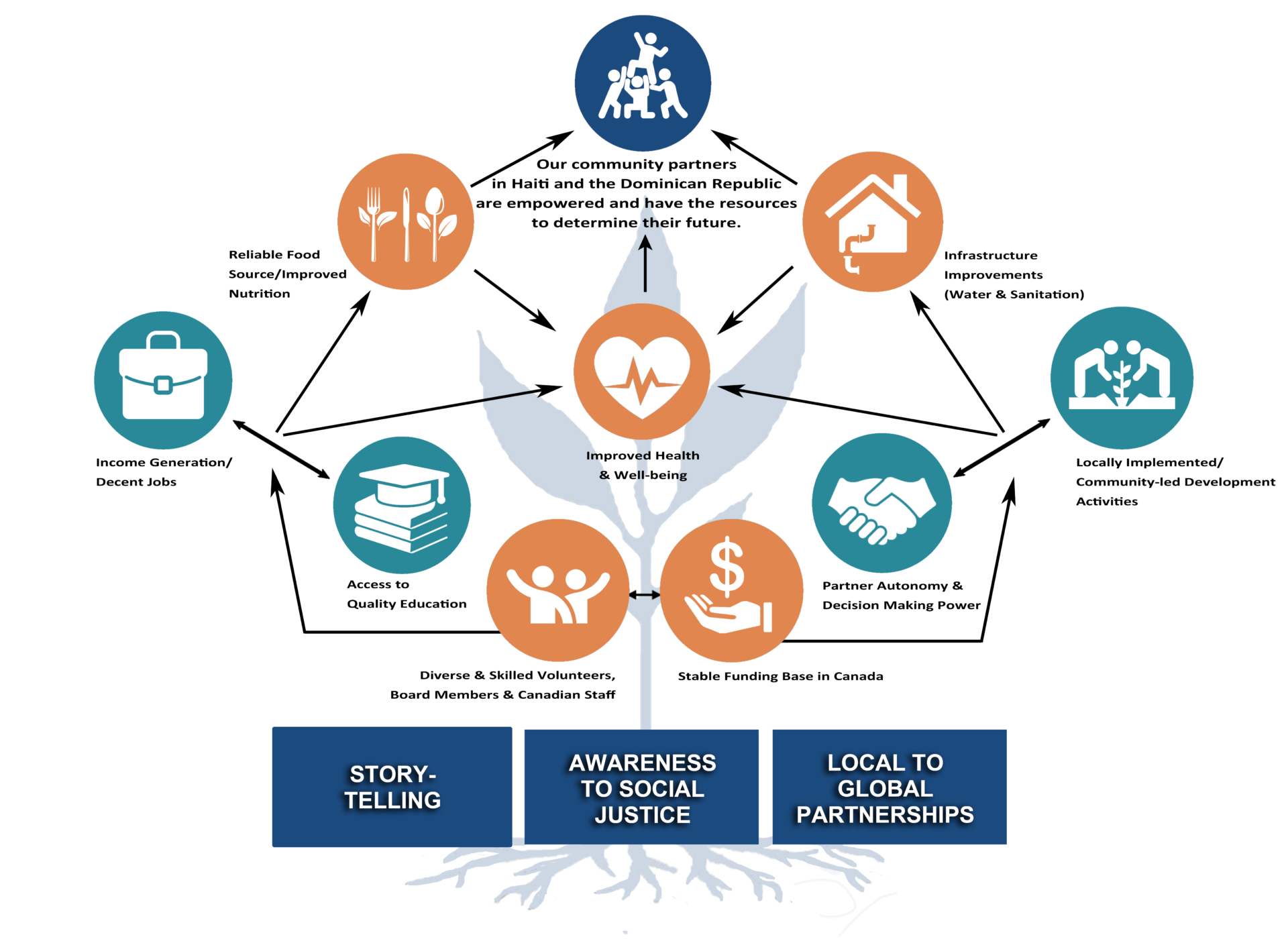
In order for our partners to thrive as empowered, independent, and self-sufficient individuals and communities, they require reliable food sources, improved health and well-being, and infrastructure improvements such as clean water and sanitation. Income generation, decent jobs, and access to quality education are imperative if these outcomes are to be realized. Locally implemented and community-led development activities that rely on our partners having autonomy and decision-making power through civic engagement, strong local leadership, tools, and financial independence are key to attaining community goals.
Our programs strive to contribute to progress in all of these areas.
Rayjon is committed to ongoing, long-term relationships with the people of Haiti and Dominican Republic as we walk the path of development and social justice with them.
Integral to the way we imagine change are the three pillar objectives of Storytelling, Awareness to Social Justice, and Local to Global Partnerships. These are foundational and cross-cutting, supporting positive change with each step forward.
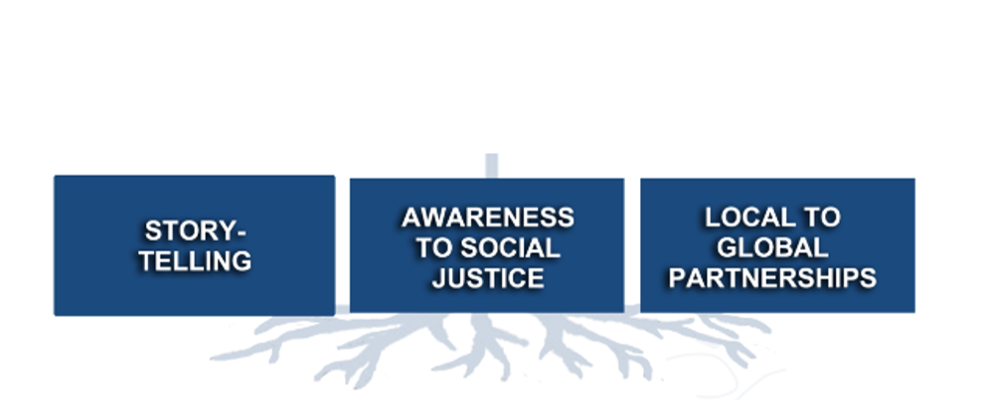
Please click the images below to view the complete Local to Global: Strategic Plan 2023-2028 and Appendix:
As we strive for healthy, respectful collaboration with our Haitian and Dominican partners, we are committed to implementing:
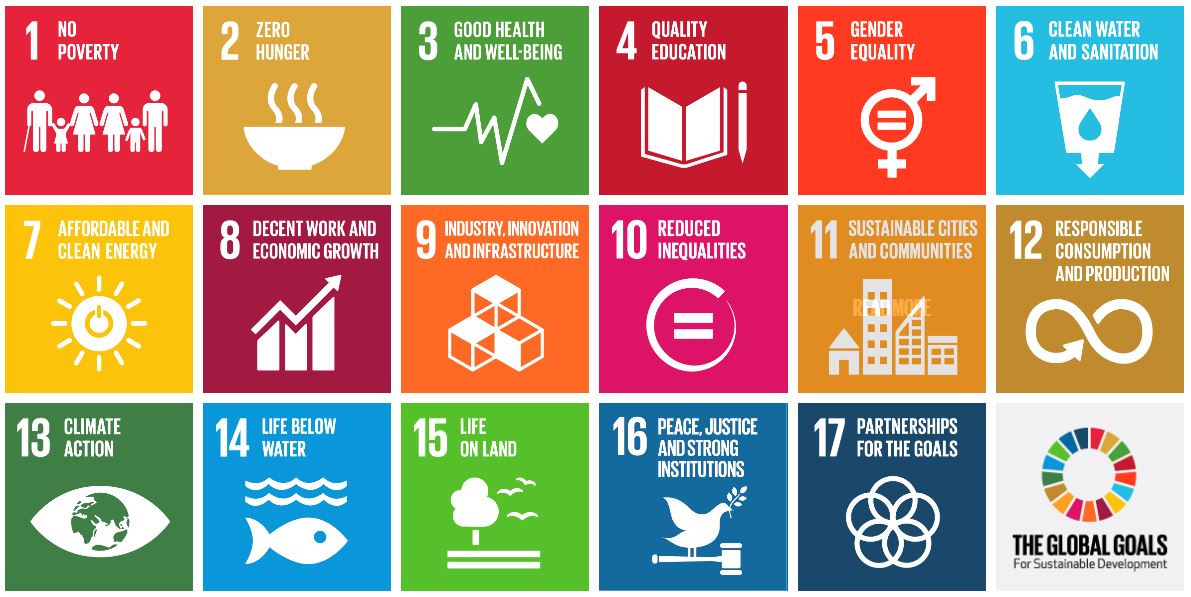
Sustainable Development Goals (SDGs)
The SDGs are a collection of 17 interconnected goals to address humanity’s global challenges, including poverty, inequality, climate change, environmental degradation, prosperity, peace and justice.
Rayjon’s strategic plan objectives are linked to the SDGs, identifying actions that we can take together to eradicate poverty, end inequality, and address climate change—leaving no one left behind.

Rayjon seeks to implement a “Do No Harm” approach, recognizing that our presence and intervention can have unintended consequences in partner communities, fueling or prolonging conflict, disrupting the local economy, or undermining local leadership and priorities. Rayjon Board Member Peterson Benjamin has summarized the 6 key principles of “Do No Harm” to guide us, ensuring that we act in compassion and solidarity, while in line with local context and doing no harm:
1) Humanitarian aid becomes part of the context; no intervention is seen as neutral.
2) In any conflict, there are factors of division and union. Divisive factors lead to conflict, while uniting factors bring people together and ease tensions.
3) Humanitarian aid influences both factors (division & union)
4) Resource transfers have an impact. What we bring and how we distribute it has an effect. Implicit ethical messages also have an impact. Our actions have consequences.
5) Every detail counts: why, what, when, where, how.
6) There are always solutions. Never feel that you can’t improve a situation. Programs can be modified to eliminate negative impacts.
Adapted from: Anderson, Mary B. (1999). Do No Harm: How Aid Can Support Peace, or War.
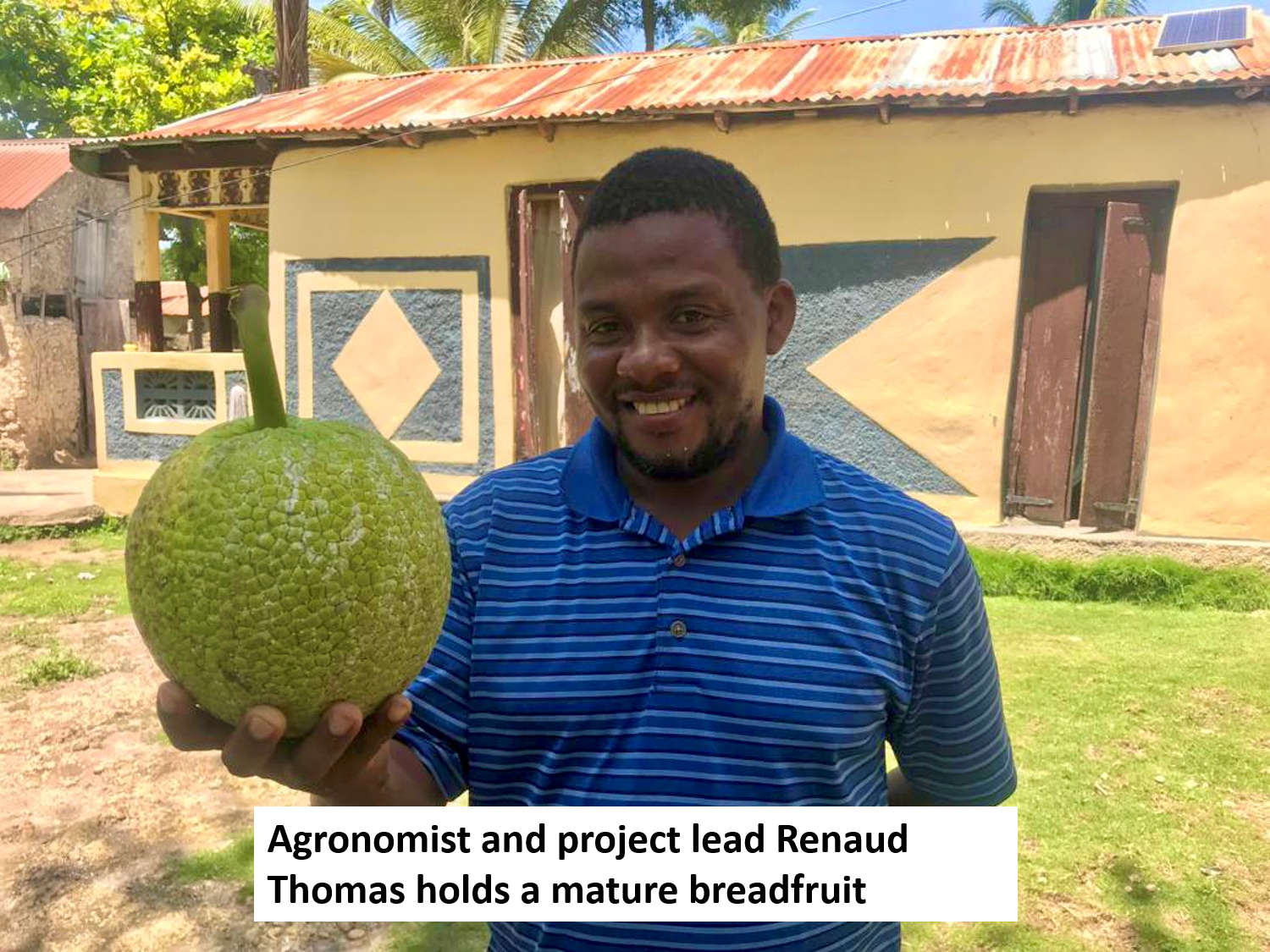
An example of our mission in action is the “breadfruit project.” The 350+ strong women of the Haitian Women’s Federation in the St. Marc region represent 7 distinct rural villages. These ladies are leading the charge for sustainable development in their communities.
They recognized multiple needs: the need for employment opportunities and business skills training for women, the need for local farming families to be able to access mills where they could process their harvests for sale and consumption, the need for food security in a crisis economy and unstable environment, and the need for sustainable approaches to agriculture to protect from environmental disaster and climate change.
Their solution: launching a cooperative agri-business including planting of a sustainable breadfruit tree nursery, construction of a fruit and grain processing factory, and provision of milling services for local grain farmers. With combined contributions from Rayjon and Canadian funding partners and from the women themselves (both financial and in-kind labour and investments), the first 500 saplings have already been sold or distributed back into the community and another 1,000 are scheduled by the end of the year. Hundreds of women are being trained in leadership and business development and are receiving support to grow the cooperative as well as start their own small businesses. The mills are allowing families to get their product to market, and provide a reliable source of income for the Women’s Federation to be reinvested back into the communities to support education, health care, and business development.
The Rayjon community welcomes you. Join our diverse group of volunteers with a passion for social justice, and an openness to growth, innovation and change.
As we listen and learn in the present, we are reimagining the future. We’re changing, growing, and building for better—together.
- Theory of Change graphic designed by Katy Trimble & Chris Bluhm at Fanshawe College’s Lawrence Kinlin School of Business
- Special thanks to Hudson Thomas and St. Patrick’s Catholic High School students in the tech department for creating the video 🙂
